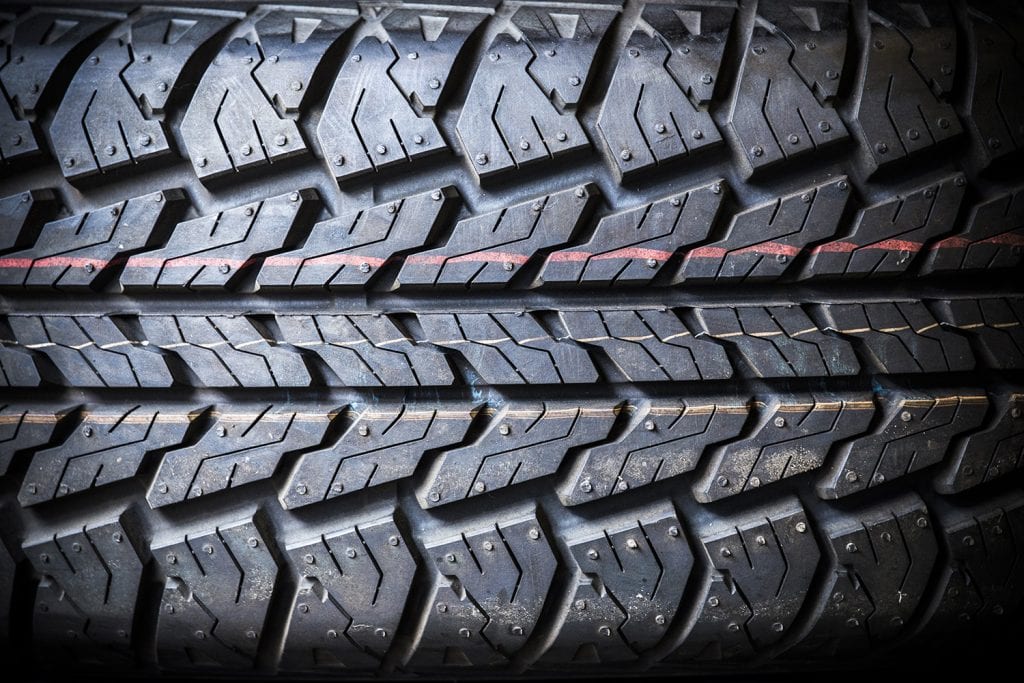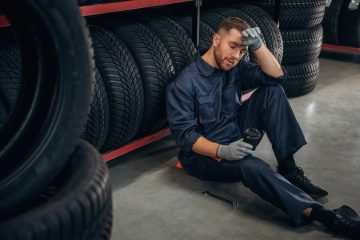
Car tyres responsible for thousands of tonnes of UK plastic pollution according to a Friends of the Earth report
Up to 19,000 tonnes of microplastic pollution could be entering UK waterways every year from vehicle tyres, says a new report for Friends of the Earth published today.
The environmental campaign group is calling on the government’s resources and waste strategy – expected later this month – to include measures for tackling microplastics as part of a comprehensive action plan.
Vehicle tyres shed tiny bits of plastic (a mixture of natural and synthetic rubber, and well as various additives) during driving, and are believed to be responsible for the greatest proportion of microplastic pollution entering EU surface waters.
Microplastics can also absorb and concentrate toxic pollutants from the surrounding seawater, making them even more poisonous to animals that mistake them for food or absorb them through their gills and skin.
In October, new research revealed that plastic had been discovered in the faeces of people who took part in a Europe-wide study.
Friends of the Earth’s new report – Reducing Household Contributions to Marine Plastic Pollution – estimates that between 9,000 and 32,000 tonnes of microplastic pollution enter UK waterways each year from just four sources. This figure is of the same magnitude as large plastic waste (estimated to be between 10,000 and 26,000 tonnes), such as plastic bottles and takeaway containers, that’s estimated to enter UK waterways annually.
The report looks at four key sources of microplastic pollution and estimates that:
1. Vehicle tyres: 68,000 tonnes of microplastics from tyre tread abrasion are generated in the UK every year with between 7,000 and 19,000 tonnes entering surface waters.
2. Clothing: As much as two thirds of UK clothing could be made from synthetic plastic material. The report says the washing of synthetic clothing could result in the generation of 2,300-5,900 tonnes of fibres annually in the UK. Somewhere between 150 and 2,900 tonnes of this could be passing through wastewater treatment into our rivers and estuaries [6].
3. Plastic pellets are the ‘feedstock’ used to manufacture plastic items. Between 200 and 5,900 tonnes are lost to surface waters in the UK every year.
4. Paints on buildings and road markings weather and flake off resulting in between 1,400 and 3,700 tonnes of this ending up in surface water per year.
Friends of the Earth is urging the government to consider a number of measures to tackle tyre car pollution, including:
• A standardised test to measure tyre tread abrasion rate, and integration into the current tyre labelling scheme
• A car tyre levy, to pay for research into solutions, and for mitigation measures. Once the test method has been developed, the levy could ultimately be varied based on the tyre tread abrasion rate
• The better management of mitigation measures such as roadside ‘gully pots’ and the use of porous asphalt to capture microplastic pollution before it enter drains
• Industry to prioritise the development of tyres with a reduced tread abrasion rate, while also seeking to reduce airborne particulate emissions from tyres
• Measures to encourage less driving, such as better public transport and cycling facilities.
The environmental campaign group is also urging industry and ministers to do far more to address the torrent of microplastic pollution pouring into our environment every day. Friends of the Earth is calling on the government to introduce a Plastics Pollution Action Plan. The plan should aim for near zero plastic pollution by 2042, beginning with the phase-out of unnecessary plastics and the setting up of an expert Committee on Plastics Pollution to advise ministers.
Friends of the Earth plastics campaigner Julian Kirby said: “It’s staggering that so little is being done to prevent thousands of tonnes of microplastic pollution from car tyres, clothing and paints pouring into our rivers and seas every year.
“Microplastic pollution may be largely invisible, but it’s having a potentially devastating effect on our natural environment – especially as it can be mistaken for food by some our smallest ocean creatures, which are then eaten by bigger creatures as part of the food chain.
“Ministers are right to be concerned about the impact of bags, straws and single-use coffee cups on our environment, but we mustn’t ignore the threat from tiny bits of plastic too.”




You must be logged in to post a comment.